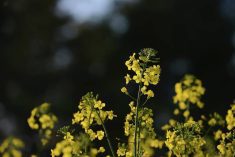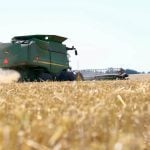Now that clubroot is officially in Manitoba, a farmer in the province’s oil patch wants petroleum industry companies to wash vehicles before entering farmland.
Carlyle Jorgensen, who farms near Cromer, said cleaning trucks and other equipment is a standard protocol in Alberta and should become customary in Manitoba.
“In our area of our province, an existing oil and gas facility could see traffic in the year of up to 400 (visits). A new exploration could see in the thousands in a year,” Jorgensen told a Keystone Agricultural Producers meeting in Portage la Prairie in October.
Read Also

University of Saskatchewan launches Introductory Agriculture certificate program
A new University of Saskatchewan program is aimed at students or professionals looking for a base of Prairie agricultural knowledge.
“Alberta has had clubroot for decades and when I worked out there … it was mandatory that (trucks) had to be cleaned,” he said.
“The pipeline industry is the same…. They stop at the edge of a quarter, the equipment is washed (before) they move to the next quarter.”
Manitoba Agriculture officially confirmed In September what had been suspected for months: clubroot is in Manitoba. Provincial plant pathologists had detected clubroot galls on two canola fields this summer.
Manitoba Agriculture said cleaning equipment before entering farmland is a key practice to limit the spread of the soil-borne disease
When landowners sign lease agreements with petroleum companies they
Landowners can request a “clean before enter” provision when they sign a lease, but Jorgensen said farmers are out of luck if the company refuses.
He said companies can ask the provincial government for right of entry if they fail to agree on a lease, and the language in that boilerplate document doesn’t mention equipment cleaning.
“That right of entry is written by the province and you have no chance of putting anything on there. So, that’s the issue,” Jorgensen said.
“We (the Manitoba Surface Rights Association) are lobbying the minister right now … to re-write the right of entry (language) to put that in there.”
Chuck Fossay, who farms near Starbuck, Man., said farmers should ask all companies, including petroleum firms, crop input suppliers and utilities, to clean equipment.
“If you hire a custom sprayer or custom fertilizer applicator, you say before you come on my field, ‘I expect that machine to be washed,’ ” he said.
“The federal government has a standard and then it’s up to producers to put in place their own risk assessment and risk practices.”
Manitoba Agriculture hasn’t released the locations of fields with confirmed cases of clubroot.
Fossay said it’s unnecessary for the government to do so because cleaning trucks and heavy equipment should be a normal biosecurity protocol to protect farmland from weed seeds, insects and plant disease.
“There are probably low levels of (clubroot) infection in fields that haven’t been found yet,” he said.
“(Farmers should) put in a practice that minimizes the risk, of any kind of contamination, coming onto (the) field.”
He said some Manitoba farmers neglect biosecurity because, like most people, they respond when there’s a crisis.
“I suspect a lot of guys aren’t doing anything because usually you don’t do anything until you have a problem.”















